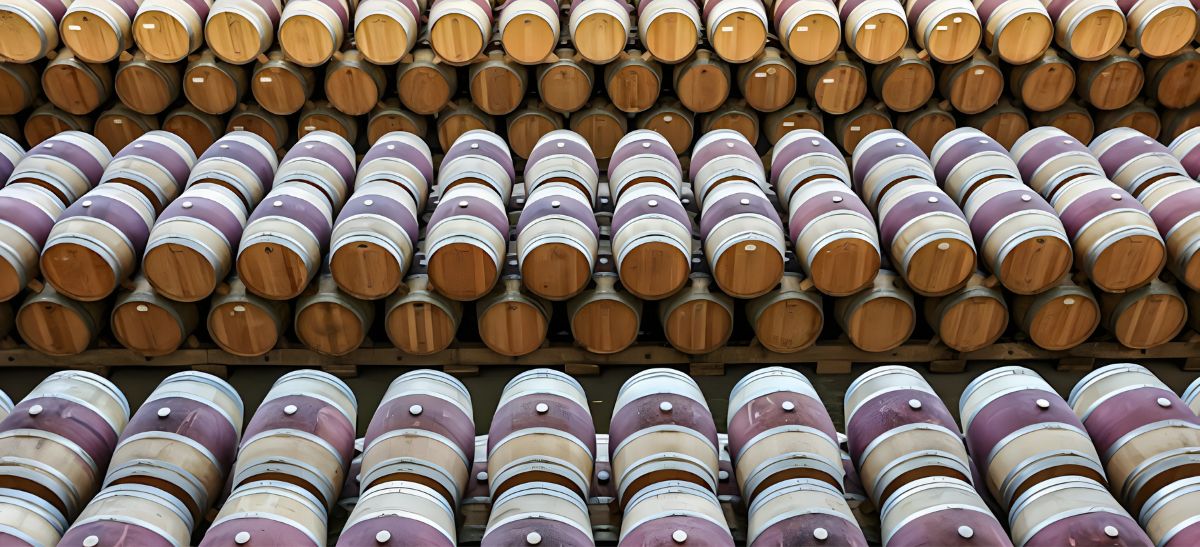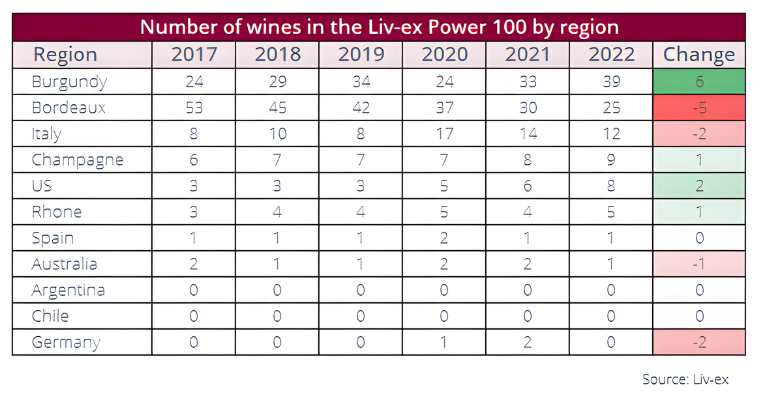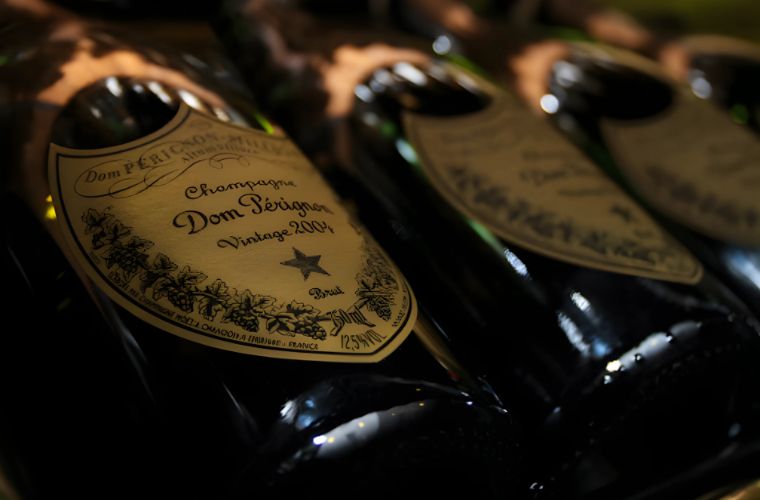Early Bird
Deadline
January 31, 2026
Judging
Date
May 18, 2026
Winners
Announced
June 10, 2026

“Fine wine,” a term laden with prestige and tradition, has also recently been a subject of fascination within the wine industry, including the on-trade. Defined by its exceptional quality, ability to age, and the unique expression of its terroir, fine wine occupies a special place in the hearts of enthusiasts, sommeliers, and investors alike. However, as the global wine landscape evolves, so too must our understanding of what constitutes fine wine.
Enter ARENI Global, a think tank dedicated to rethinking the future of fine wine. Led by Pauline Vicard, ARENI Global has embarked on a noble yet challenging mission: to redefine the parameters of fine wine for the modern era. Their 2023 white paper, based on interviews with 200 industry experts, identified five key attributes of fine wine: balance, harmony, complexity, emotional provocation, a relationship with its maker, sustainability, and recognition by the broad community of taste.
Notably, ARENI’s “partners” for the fine wine white paper included a powerful trade organization, the California Wine Institute, Sotheby’s, Berry Brothers & Rudd, Nonni Strategic Marketing, Moët Hennesy, and Ste Michelle Wine Estates, all companies with a huge financial stake in the luxury and premium wine sectors.
Critics of ARENI's approach, such as Tim Atkin MW, argue that while attributes of fine wine defined by ARENI are valid, they are not exclusive to wines considered “fine” by most people. Critics point to the conservatism of the fine wine world, which often values tradition over innovation and is slow to adapt to changing consumer preferences. Importantly, this viewpoint also questions the relevance of defining fine wine in such rigid terms, arguing that it limits the diversity and creativity of the wine industry.
Writing in 2023, Atkin pointed out: “Liv-ex’s Power 100, based on the prices at which fine wines are traded, encapsulates this conservatism. The most recent ranking is made up of producers from the following narrow band of countries and regions: Burgundy (39), Bordeaux (25), Italy (12), Champagne (9), the United States (8), the Rhône (5) and one each from Spain and Australia. Without looking up the list, guess the wineries from Spain and Australia? Yup, spot on Penfolds and Vega Sicilia.”

Tim Atkin MW's critical perspective on the fine wine market comes into focus through an interview ARENI conducted with James Miles and Justin Gibbs, the founders of Liv-ex. Atkin highlighted the conservatism of the fine wine world (exemplified by the Liv-Ex index), noting its slow adaptation, timidity in judgments, and reluctance to embrace emerging superstars or new regions until market confirmation. He emphasizes that while critics play a crucial role in the market, their influence on pricing has diminished somewhat since the retirement of figures like Robert Parker.
Liv-Ex's innovation, the LWIN (Liv-ex Wine Identification Number), stands out as a key development in treating fine wine as an asset, not necessarily something to be enjoyed. It provides a standard descriptor for wine labels, enabling better communication and data management. Liv-ex also employs sophisticated systems to check the authenticity of wines, addressing concerns about counterfeiting.
Tim Atkin's critical perspective on wine as an investment differs from the views of Liv-ex founders. While LivEx has built a platform that facilitates the trading of fine wines as investments, Atkin is critical of treating wine as a financial asset. He expresses concerns about the impact of investment-focused buying on wine quality and the broader wine market. Atkin's focus is on the intrinsic qualities of fine wine, its cultural significance, and its enjoyment rather than its potential financial returns. This contrast highlights the diverse viewpoints within the wine industry regarding the role of fine wine as an investment and its broader cultural and aesthetic value.
However, ARENI's intellectualizing efforts should not be dismissed. By challenging the status quo and pushing the boundaries of what is considered fine wine, they are opening up new possibilities for both producers and consumers. By emphasizing sustainability, emotional provocation, and recognition by the broader community of taste, ARENI is encouraging a more inclusive and dynamic approach to fine wine.

Source: Unsplash
So, why should sommeliers care about all this? Sommeliers play a crucial role in shaping the fine wine landscape. They are the gatekeepers, curating wine lists and guiding consumers towards new and exciting experiences. For sommeliers, understanding the evolving definition of fine wine is essential for staying relevant in a rapidly changing industry.
Pascaline Lepeltier, France's best sommelier in 2018 and winner of Meilleur Ouvrier de France opened the acclaimed restaurant Chambers in New York City in 2022. Known for her passion and respect for wine, she has amassed a large following on Instagram and teaches for the Wine Scholar Guild.
Lepeltier has reflected on the evolving landscape of fine wine and its intersection with the role of sommeliers. She emphasizes the importance of understanding the context and reasons behind wine styles and regions, rather than just memorizing facts. This perspective resonates with the changing nature of “blue-chip” wines in today's market.
Lepeltier observed that blue-chip wines have shifted from being extraordinary to excellent. This reflects how these wines have become more standardized and consistent, possibly losing some of their unique character and allure. This shift parallels the need for sommeliers to understand the deeper nuances of wine beyond just recognizing prestigious labels. Sommeliers must navigate a market where consistency and excellence are highly valued but must also strive to provide unique and extraordinary experiences for their guests.
Additionally, Lepeltier's emphasis on the sommelier’s psychology and communication skills aligns with their important and evolving role as storytellers and educators. As the wine industry becomes more accessible and diverse, sommeliers play a crucial role in guiding consumers through the vast array of choices, imparting knowledge, and creating memorable experiences. Understanding the psychology of consumer behavior and effective communication can enhance a sommelier's ability to connect with guests and provide personalized recommendations.
Overall, Lepeltier's insights underscore the importance of continuous learning and adaptation in the wine industry. As sommeliers, understanding the historical, cultural, and psychological aspects of wine can enrich their approach and help them navigate the ever-changing landscape of fine wine.
Thus, sommeliers need to be aware of the diverse range of wines that fall under the umbrella of fine wine. While Bordeaux and Burgundy may have traditionally dominated this category, wines from lesser-known regions are gaining recognition for their quality and uniqueness, as Atkin advocated. By expanding their knowledge and appreciation of these wines, sommeliers can offer their customers a more diverse and exciting wine selection.
Secondly, sommeliers play a key role in educating consumers about the wines they serve. By understanding the attributes that define fine wine, sommeliers can help consumers appreciate the nuances and complexities of the wines they are drinking. This not only enhances the consumer experience but also helps to elevate the status of fine wine as a whole.
[[relatedPurchasesItems-61]]
Finally, as ARENI and many others have noted, sommeliers have a responsibility to promote sustainability within the wine industry. As consumers become more conscious of the environmental impact of their purchases, sommeliers can help drive demand for wines that are produced sustainably. By supporting producers who prioritize sustainability, sommeliers can help ensure a more sustainable future for the wine industry as a whole.
In conclusion, the definition of fine wine is a complex and evolving concept that is central to the identity of the wine industry. ARENI Global's efforts to redefine fine wine for the modern era should be seen as a positive step towards a more inclusive and sustainable wine industry. Critics of this exercise, however, have very valid points. For sommeliers, understanding and embracing this evolving definition is essential for staying relevant and continuing to provide exceptional wine experiences for their customers.
Header Image Source: Unsplash
Enter your Wines now and get in front of top Sommeliers, Wine Directors, and On-Premise Wine Buyers of USA.
